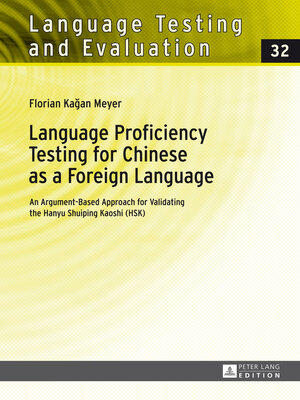Language Proficiency Testing for Chinese as a Foreign Language
ebook ∣ An Argument-Based Approach for Validating the Hanyu Shuiping Kaoshi (HSK) · Language Testing and Evaluation
By Rüdiger Grotjahn

Sign up to save your library
With an OverDrive account, you can save your favorite libraries for at-a-glance information about availability. Find out more about OverDrive accounts.
Find this title in Libby, the library reading app by OverDrive.



Search for a digital library with this title
Title found at these libraries:
| Library Name | Distance |
|---|---|
| Loading... |
How did the (old) Hanyu Shuiping Kaoshi (HSK) assess the Chinese proficiency of non-native speakers of Chinese? What inferences can be derived from HSK test taker scores, especially from Western test takers? How difficult is it to learn Chinese according to the HSK? Thirty years of research have been synthesized into an argument-based approach for validating the most widespread test for Chinese as a foreign language. In addition, the author has analyzed the scores of a sample of over 250 German test takers in order to investigate how many hours German natives needed on average to study for reaching a specific HSK level. This work also extensively discusses validation theory for psychological testing, and it demonstrates how to put an argument-based approach to validation into practice.







